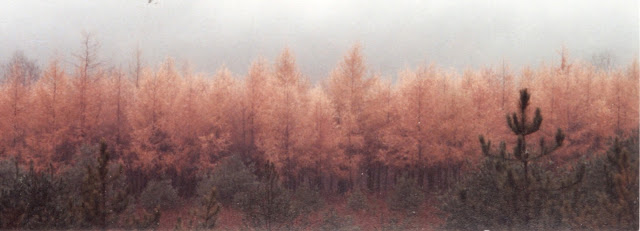So, The Hands, continued.
Nearly three weeks after the surgery on my left hand, it's noticeably better than it was, is better than my right hand, and less painful, so I'm pretty happy. It is, on the other hand, still numb, particularly in the middle finger, which affects the typing. It's a very strange thing to be unable to feel whether shampoo is rinsed out of what little hair I have, or soap off my body in the shower. It's odd reach out and touch someone and miss the sensation of the texture of their arm or cheek. At least the surgery prevented further damage. And it gives me even more hope for my right hand, the procedure for which is16 November, a week from Monday. Then another week and a half of bandages--then two and a half more weeks keeping (at least the right hand) out of the pool and the ocean and other potentially germy standing water and I'll be free to experience the unsanitary world without worrying about incisions. Then I'll figure out what's next.
It's no surprise that the medical profession is intentionally specialized. Their approach to the hand is really like the "The Five Blind Men and the Elephant." (If you don't know the story, each has a different perspective: the elephant is like a snake, the elephant is like a hose, elephants are like walls, elephants are like tree trunks.) The jury's still out, at least for me, on whether there's an adequate payoff for specialization. It's slow and expensive. And each specialist tells me different stories about my hands. I'm sure each of them evokes a slightly different story from me about what I'm experiencing. And for the most part it's been difficult to schedule consecutive appointments close together--hence the now going on four month process since my hands went abruptly numb in England. And when I do have appointments during consecutive days, then I try to dodge the hour-plus each way of rush hour traffic and pamper the hands before and after because they don't like the steering wheel. that's how (at least this phase of) this all began.
 |
| (1999 illustration by Jason Hunt) |
On the other hand, I feel confident knowing that the surgeon's done more than five thousand of these cuts. He seems to have it down, and is really personable. I didn't really expect that of a surgeon. My general care doctor really does have the big picture. But he's afraid of pain medication.
Pain. The 1-10 chart. The pictures are a little more helpful. But it changes. And as there's a degree of difference between sharp, dull, throbbing, aching, piercing--and their overlap--those are subjective too for the teller and the hearer--there's no good way to treat it. I can't take NSAIDs (aspirin, naproxen sodium, ibuprofen) during the week before or after the surgery--they thin the blood. But the other go-to medications for pain, the opiates Oxycodone and Hydrocodone (I like Hydrocodone better--it's gentler and seems to work better for me) freak the medical establishment out. If you ask for it, you're heading down the slippery slope of dependence, and they look at you with suspicion if not outright hostility. I really haven't experienced this much, personally, but I've seen other people respond--and be responded to--that way. It doesn't help that in the media, like last Sunday's Sixty Minutes which featured the suburban heroin epidemic, reporters and parents and nurses sensationalize the medical opiates as a gateway drug for opium and heroin. What they don't mention is that one of the reasons people turn to illicit drugs is that the medical establishment, in it's own fear, unreasonably restricts the use of legitimate pain medications, cutting patients off too soon. And they make it embarrassing to ask for in the first place so you self-censor. Nor do they take responsibility for their children, who were on pain medication in the first place because they played unreasonably and increasingly limb-and-joint-threatening sports in high school, and experienced much more unmanageable pain than did most kids in previous generations.
The discomfort in my hands mutates into pain if I do too much, if I carry luggage or groceries, if I chop a few too many vegetables, if I type for too long, or when I wake up in the morning of the first few hours of the day. At it's worst, every couple or three day, it's about the same as when I had knee surgery ten years ago. It's manageable. It's certainly not anywhere near as bad as that of my friends who have had cancers. It can be debilitating: when I discover I can't open a jar or a door--or a pain medication bottle--and have to steel myself and think it through. More troubling to me is that it's distracting. Sometimes very distracting. So I lose my focus, my train of thought. It also makes me afraid of doing things to exacerbate it and it's root causes. Now I'm afraid of bike riding. Of lifting weights in the gym (Oh yeah, you need your hands and wrists for that and my fingers won't close into a fist. Boxing's out. And gyms are germy places, too) It's definitely, if I'm to be honest, more than an annoying numbness and tingling, which is how I'd always thought of CPS.
And of course, because I've used it (a great deal), my insurance is going up to 500$ a month, with a $6,000 deductible. Twelve thousand a year off the top, out of pocket. But more on that on a later post.




































